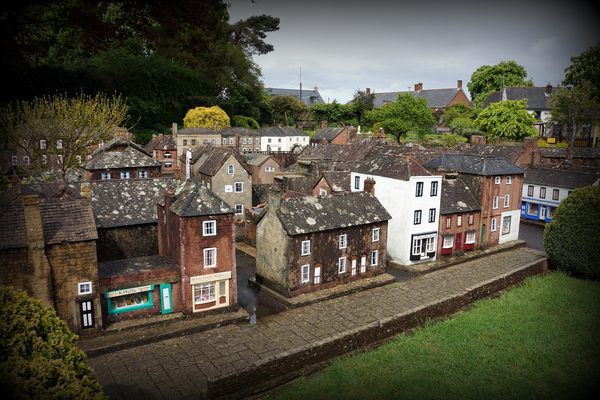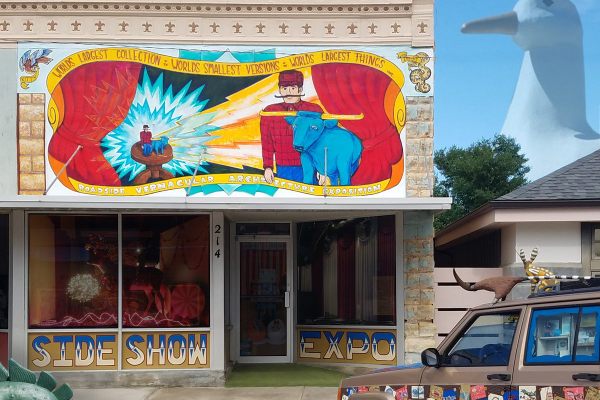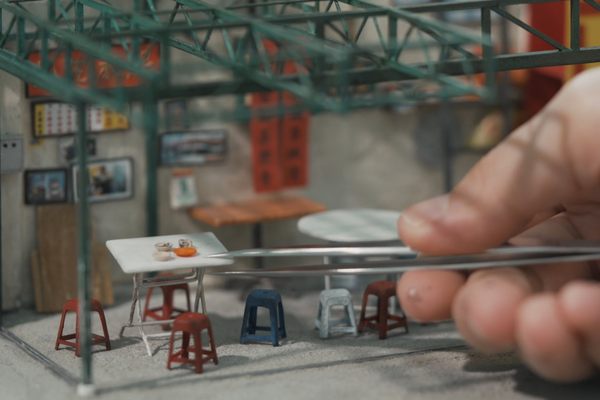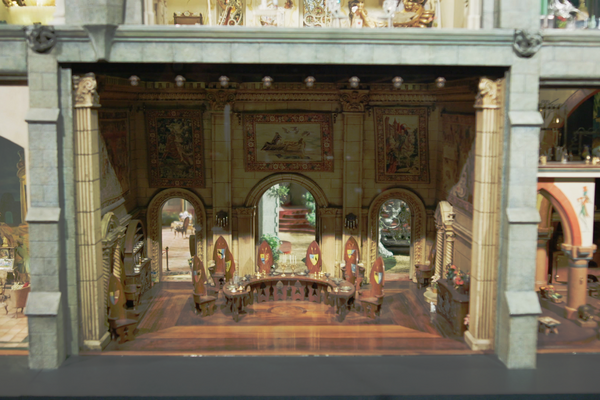Feel like a Monster at These 10 Tiny Towns
Humans are united by a strange fascination: in recreating their worlds in miniature. From England to Istanbul, dedicated individuals have obsessively built tiny versions of their towns — architecture so small it is absolutely useless except as a whimsical attraction. What is it about miniatures that is so pleasing? Is it the feeling of being a monolithic god, or perhaps a rampaging giant monster, above these little places? Or is it just amusing to see the formidable buildings of the world reduced to toy size?
Here are 10 of the world’s most amazing tiny towns, where you can stride through like a conquering giant.
WIMBORNE MINSTER MODEL TOWN
Wimborne Minister, England
photograph by Jim Champion
For quaint charm, you can’t beat the Wimborne Minister Model Town. As one of the biggest and most elaborate model towns in England (which is host to quite a few miniature municipalities), it almost perfectly recreates Wimborne Minister itself as it appeared in the 1950s. The buildings at 1/10th scale were built from photographs of the town center, including the looming church and even tiny people with small cars among the 120 buildings. Unfortunately, the Wimborne Minister model fell into disrepair after interest in it waned. Now, however, it has been revitalized and is tended to by dedicated volunteers.
photograph by Lex McKee
photograph by Lex McKee
photograph by Lex McKee
LE JARDIN DE NOUS DEUX
Civrieux-d’Azergues, France
photograph by Petitge/Wikimedia
Le Jardin de Nous Deux means “The Garden of the Two of Us,” and the little landscape of peaked towers and exotic designs in France was built by Charles Billy based on the travels he took with his wife. Billy began the garden in 1975, recreating some of their favorite sites, and he worked on it until he passed away in 1991. While still a private space, the Leaning Tower of Pisa and the Venetian palaces still remain as he left them in the romantic space.
LE PETIT-PARIS
Vaissac, France
Gérard Brion at Petit-Paris (via Petit-Paris)
Also in France is another one-man wonder: Le Petit-Paris. Gérard Brion spent over two decades building the miniature of the City of Lights in his backyard. Although the diminutive Arc de Triomphe, Eiffel Tower, and Haussmannian boulevards appear as elegant as the real thing, they are all built from trash, including old soup cards, baby food jars, and cardboard.
photograph by Gérard Brion
Petit-Paris by night (via Petit-Paris)
MINI-EUROPE
Brussels, Belgium
photograph by Andrew Childs
If you want even more petite Paris, head to Brussels for Mini-Europe, where the Arc de Triomphe appears at a 1:25 scale along with other European Union icons. Mini-Europe was opened in 1989, and includes over 350 pieces, with a Mount Vesuvius that actually erupts and a chiming Big Ben. As a curious contrast, it is nestled at the base of the Atomium monument, which represents an iron crystal magnified 165 billion times.
The fall of the Berlin Wall at Mini-Europe (photograph by Maria Firsova)
photograph by Jerry Pank
BEKONSCOT MODEL VILLAGE
Beaconsfield, England
Bekonscot Model Village in 1988 (photograph by Robert Linsdell)
Back to England, Bekonscot is the oldest of the world’s model villages. It shows life in rural England in the 1930s, and was started by an idle accountant named Roland Callingham. Originally it filled his backyard and used his swimming pool as the sea, but now Bekonscot is much expanded with water features, boats, trains, and plenty of wandering figures in the outdoor space.
photograph by Cristian Bortes
photograph by Timo Newton-Sym
photograph by Mark Fosh
SHANGRI-LA STONE VILLAGE
Prospect Hill, North Carolina
photograph by C.E. Delohery
Retired tobacco farmer Henry L. Warren constructed Shangri-La Stone Village in North Carolina from concrete, stone, and thousands of arrowheads. He started back in 1968, blasting his own rock, and until he died in 1977 he could often be seen with a cigaratte and soda in hand toiling away on the red-accented buildings. Thanks to its sturdy design, the 27 buildings, including a theater, hotel, gym, and water tower, still stand. Who knows, with their low stature and stone architecture, they might outlast the bigger cities around them, leaving a strange puzzle for future archaeologists.
photograph by C.E. Delohery
photograph by C.E. Delohery
photograph by C.E. Delohery
MINIATURE WALCHEREN
Middelburg, The Netherlands
via Wikimedia
Miniature Walcheren was only meant to stand for three months, but proved so popular it remains. It was commissioned by the Queen and constructed in the 1950s, replicating the city of Walcheren’s best buildings at a 1:20 scale out of wood. 600 volunteers were necessary to make the little town with its windmills and charming little homes, and it also includes over 30 boats.
via Wikimedia
photograph by Norbert Schnitzler
photograph by Norbert Schnitzler
MINIATURK
Istanbul, Turkey
photograph by Dzhingarova/Flickr user
Opened in 2003, Miniaturk in Istanbul is a newcomer on the tiny town scene, but it’s already one of the biggest. With 160,000 square feet, it presents over 100 models. The beautiful buildings show 45 of Istanbul’s landmarks, as well as other icons from Anatolia and the Ottoman Territories.
photograph by Boris Dzhingarov
photograph by Boris Dzhingarov
photograph by Boris Dzhingarov
MINI SIAM
Pattaya, Thailand
photograph by Sergey/Flickr user
Mini Siam was built in 1986 in a remote area of Thailand in an attempt to bring in tourism. It worked, and the attraction continues to show some of the world’s wonders at 1:25 scale, including Buckingham Palace, Angkor Wat, and the Sydney Opera House alongside historic sites from Thailand like the Temple of the Emerald Buddha and the bridge over the River Kwai.
photograph by Sergey/Flickr user
HARTMAN’S ROCK GARDEN
Springfield, Ohio
photograph by Cindy Funk
H.G. Hartman was toiling on a stone fish pond at his Ohio home in 1932, unemployed and looking for a purpose in the Great Depression. That’s when he was inspired to create Hartman’s Rock Garden, a rock village that in some 20,000 stones now replicates the White House, Independence Hall in Philadelphia, Mount Vernon, and even the animals on Noah’s Ark. While much is now covered in moss and mostly patrolled by small insects, it remains quietly behind its stone picket fence, representing this international impulse to reduce our world down to a smaller size.
photograph by Cindy Funk
photograph by Cindy Funk
















Follow us on Twitter to get the latest on the world's hidden wonders.
Like us on Facebook to get the latest on the world's hidden wonders.
Follow us on Twitter Like us on Facebook